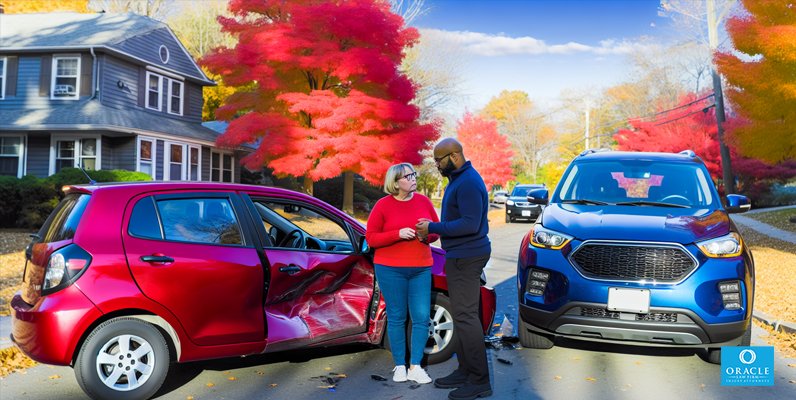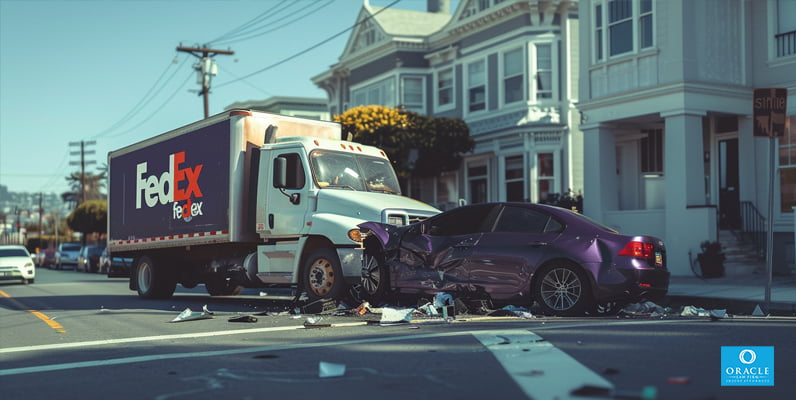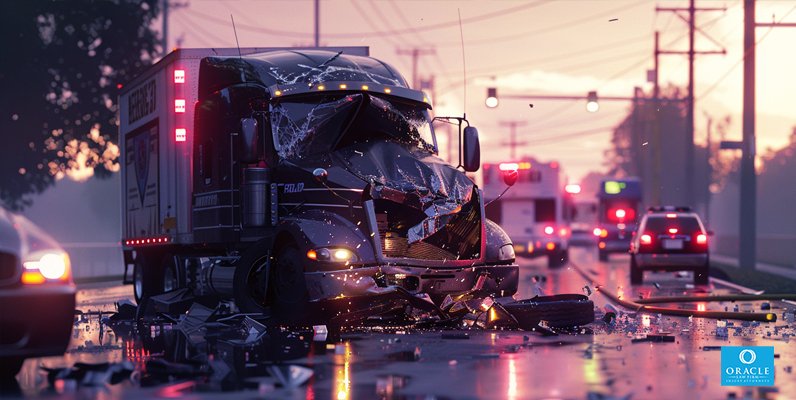Are you carrying the financial risk of a collision deductible, especially in an accident with an uninsured driver? A waiver of collision deductible ensures your out-of-pocket expenses are covered in such instances. Learn how this waiver offers peace of mind, its cost-effectiveness, and why it might be an essential part of your auto insurance policy.
Key Takeaways
- A Collision Deductible Waiver (CDW) supplements standard car insurance by covering the deductible when the policyholder’s vehicle is hit by an uninsured driver, eliminating out-of-pocket expense under certain conditions.
- The cost of adding a CDW to an insurance policy is relatively affordable, generally ranging from $12 to $144 annually, with the actual cost influenced by regional uninsured accident rates, individual insurer terms, and the policyholder’s credit history.
- While CDs provide substantial financial protection, they come with limitations, such as not applying to car accidents where the policyholder is at fault, single-car incidents, or cases where the at-fault driver has insurance.
Understanding Waiver of Collision Deductible
Incorporating a Collision Deductible Waiver (CDW) into your car insurance policy is an option. This waiver ensures your insurer bears the deductible cost if your vehicle gets hit by an uninsured driver, thus shielding you from unforeseen financial stress. A collision deductible waiver offers a financial buffer in unpredictable scenarios by covering your deductible for damages arising from collisions, be it with other vehicles, stationary objects or while swerving to evade road hazards.
The primary advantage of a collision deductible waiver lies in its potential to save on direct expenses for car repairs following accidents where the uninsured other driver is to blame. In these situations, the process of reimbursement can be uncertain or time-consuming, making the collision deductible waiver a valuable addition to your insurance policy.
The Basics of Collision Deductible Waivers
Incorporating a collision deductible waiver into your car insurance policy can exempt you from bearing the deductible cost under specific circumstances. Its primary function is to shield you, the policyholder, from out-of-pocket expenses for deductibles when you’re not responsible for an accident. These waivers are specifically designed for situations when you need to make a claim after an accident with an uninsured driver.
Though optional, integrating a collision deductible waiver into your insurance policy typically incurs a minor additional charge.
How It Differs from Standard Collision Coverage
A collision deductible waiver offers unique benefits compared to standard collision coverage. Under standard collision coverage, you, the policyholder, are responsible for the deductible after an accident, no matter who is at fault. However, a collision deductible waiver removes this requirement if you’re involved in a collision with an identifiable, uninsured driver who’s at fault.
Hence, collision deductible waivers could serve as a strategic augmentation to your insurance, particularly in regions with numerous uninsured drivers or if your policy carries a higher deductible.
The Cost of Collision Deductible Waivers

While the advantages of a collision deductible waiver are evident, its cost might be a point of curiosity. Typically, collision deductible waivers are economical, with a monthly cost ranging from less than $1 to $12. This makes the average national cost range from $12 to $144 annually. Even at the higher end, yearly costs don’t exceed $144, typically less than the lowest deductible amount of $500. Nevertheless, bear in mind that the cost can fluctuate based on the location and the chosen coverage limit.
Factors Affecting the Cost of Waivers
A handful of factors can sway the cost of a collision deductible waiver. One of the primary factors is the likelihood of an accident with an uninsured driver, which varies by region. Regions with higher uninsured rates usually amplify the waiver’s value, due to the escalated risk. In certain locales, waivers might only be applicable under specific conditions, like when the other driver is identifiable, uninsured, and wholly responsible, potentially escalating the waiver’s cost.
Moreover, the individual terms of insurance companies for collision deductible waivers, usually shaped by state regulations, also contribute to their pricing. The cost of adding a collision deductible waiver to a policy typically varies by a few dollars based on the insurer’s assessment of local risks and compliance with state regulations.
Finally, your credit history can also impact your insurance expenditures. Those boasting good credit scores could potentially witness reduced costs for collision deductible waivers.
Applicability and Limitations of Collision Deductible Waivers

The design of collision deductible waivers is such that they cover the deductible in case an uninsured driver causes an accident. To understand how collision deductible waivers work, it’s important to know that certain types of accidents, like not-at-fault accidents, hit-and-run incidents, or accidents involving drivers insured by the same carrier may also see insurers offering collision deductible waivers.
However, it’s worth noting that the application of a collision deductible waiver, also known as a collision damage waiver, comes with certain limitations. For instance, some policies may prohibit waivers in hit-and-run accidents or impose restrictions based on the insurer’s terms.
Situations Where Waivers Apply
The design of collision deductible waivers is aimed at easing your financial burden as the policyholder when the at-fault driver lacks insurance. The waiver typically applies in scenarios where you are not at fault, enabling you to avoid the deductible in circumstances where you cannot recoup costs from the uninsured at-fault driver.
However, the waiver’s applicability hinges on the at-fault driver being uninsured and it becomes invalid if the at-fault driver possesses insurance, irrespective of the degree of fault. Furthermore, collision deductible waivers are not applicable to incidents where your vehicle is not implicated, such as being hit as a pedestrian; they strictly pertain to vehicle-to-vehicle incidents.
Limitations and Exceptions
Although collision deductible waivers can be a financial boon in numerous scenarios, they do come saddled with restrictions and exceptions. For instance, they become inapplicable if you, the policyholder, bear full or partial blame for the accident. No waiver applies in single-car accidents, where you collide with static objects like fences, highway dividers, or poles due to natural factors like ice or hydroplaning. Collision insurance, however, may still cover these situations.
In a majority of regions, the waiver doesn’t include hit-and-run incidents, but specific states may allow exceptions by law or as per the insurer’s policy.
Comparing Collision Deductible Waivers and Uninsured Motorist Coverage

Having gained a deeper understanding of collision deductible waivers, it’s vital to apprehend their comparison with uninsured motorist coverage. On the one hand, a collision deductible waiver serves as an add-on that nullifies the vehicle deductible under specific conditions. On the flip side, uninsured motorist coverage, which some states may mandate, compensates for vehicle damages and injuries if the at-fault driver is inadequately insured.
In states such as California, uninsured motorist property damage coverage affords financial security up to a certain limit if you lack collision coverage and the at-fault driver is uninsured. Certain states even allow you to stack uninsured and underinsured motorist coverage, thereby increasing the coverage limits in proportion to the number of cars listed on the policy.
Benefits of Each Coverage Type
Both collision deductible waivers and uninsured motorist coverage share the goal of shielding you from the financial burdens resulting from uninsured drivers. Collision deductible waivers act as a safeguard against the financial burden that occurs in an accident involving an uninsured at-fault driver. These waivers are optional policy add-ons that specifically aid policyholders by negating the collision deductible in qualifying incidents, helping to manage unexpected costs.
On the other hand, in regions with a significant number of uninsured motorists, uninsured/underinsured motorist coverage becomes critical, offering broad financial protection despite a possible increase in policy cost. Uninsured/underinsured motorist coverage encompasses both property damages (UMPD) and bodily injuries (UMBI/UIMBI), ensuring coverage for car repairs and medical-related expenses when involved in an accident with poorly insured or uninsured drivers.
Choosing the Right Coverage for Your Situation
The selection of an appropriate auto insurance policy for your situation necessitates contemplation of your driving habits, your vehicle’s value, and your usual routes to evaluate the probability and potential expense of collisions. It also involves assessing your risk tolerance. This includes evaluating your comfort levels with different insurance options, considering the potential financial burden of paying for repairs or replacement without a waiver, and deciding what level of out-of-pocket expenses you are prepared to handle with the help of an insurance company.
Additionally, state laws and guidelines can significantly influence your decision on whether to incorporate a collision deductible waiver into your policy. States like California and Massachusetts have unique regulations that might necessitate or discourage such waivers.
Reducing Your Deductible: Strategies and Alternatives

If a collision deductible waiver doesn’t appear to suit your needs, there exist alternative methods to decrease your deductible. Reducing the deductible via alternative methods can minimise or eradicate the requirement for a collision deductible waiver. You can explore diverse strategies, such as elevating premiums or selecting an insurance provider that furnishes lower deductibles, to diminish the deductible amount.
Compared to traditional collision deductible waivers, these alternative methods to reduce deductibles might provide greater flexibility or cost savings. As a policyholder, it’s imperative to appraise your specific insurance requirements to determine whether alternative methods or a collision deductible waiver would be the most cost-effective choice to get a collision deductible.
Disappearing and Vanishing Deductibles
Vanishing Deductible programs present another viable option. These programs allow policyholders to:
- Reduce their comprehensive and/or collision deductible annually as a reward for safe driving
- After a qualifying period, the first credit is applied
- The deductible decreases each year the driver remains accident-free, up to a maximum credit amount, such as $500.
The deductible is reduced by the earned credits upon filing a claim; if a claim is made, the accumulated credit resets but recommences from a predefined value, such as $100, instead of being entirely zero. The availability and specifics of Vanishing Deductible programs may differ based on the insurance provider and state, with companies like Nationwide offering this feature as an optional add-on.
Other Ways to Lower Your Deductible
Numerous methods exist to lower your deductible. Some examples include:
- Bundling auto and homeowners insurance with the same insurer, which can result in discounts and lowered deductible rates
- Having a good credit record, which can lead to lower insurance costs impacting deductibles
- Drivers with no accidents or moving violations can qualify for discounts that may reduce deductibles
Driving fewer than the average annual miles or participating in a carpool can qualify for low mileage discounts that reduce deductibles. Furthermore, accessing group insurance rates through an employer or association can offer insurance at a reduced cost, which might include lower deductibles.
Alternatively, opting to reduce the insurance deductible by paying a higher premium or exploring policy options that waive the deductible can directly decrease out-of-pocket expenses when a claim is lodged.
State-Specific Regulations: California
Beyond grasping the general principles of collision deductible waivers, it’s vital to pay heed to state-specific regulations. For instance, in California, the terms of collision deductible waivers, including the California deductible waiver, are defined by state insurance regulators, rather than individual insurance companies. California requires that the at-fault party must be identified for a collision deductible waiver to be applicable, which can cover certain hit-and-run incidents.
These specific regulations established by California’s state insurance regulators can influence the cost of collision deductible waivers made available to residents.
California’s Deductible Waiver Rules
In California, the collision deductible gets waived when policyholders are struck by an uninsured motorist, thanks to the collision deductible waiver. Interestingly, in California, the waiver remains applicable even in hit-and-run incidents, provided the guilty driver or vehicle is identified and proven culpable. To utilize the collision deductible waiver in a hit-and-run situation, there must be physical contact with the uninsured vehicle and positive identification of the uninsured driver. However, if you, the policyholder, is at fault, partly at fault, or if the hit-and-run driver cannot be identified, the collision deductible waiver does not apply.
The necessity to identify the guilty party in a hit-and-run incident is a critical stipulation; without it, invoking the waiver becomes challenging.
Summary
Navigating the complex world of car insurance can be daunting, but with the right information, it becomes much simpler. Collision deductible waivers offer a way to protect yourself from costly out-of-pocket expenses in the event of an accident involving an uninsured driver. However, they come with limitations and exceptions, and their cost can vary based on various factors, including your location and the terms of your insurance company.
While collision deductible waivers can be a viable solution for many, they are not the only option. Alternatives such as vanishing deductibles, bundling insurance policies, and maintaining a good credit record can also help reduce your deductible. Ultimately, the choice of coverage depends on your personal situation, driving habits, the value of your vehicle, and state laws. By understanding these aspects, you can make an informed decision that best suits your needs and helps protect your financial wellbeing.
Frequently Asked Questions
What does it mean to waive a deductible?
Waiving a deductible means that the amount you would normally have to pay out of pocket in a claim will be deducted either fully or partially by the service provider. This can save you money and reduce your financial responsibility in the event of a claim.
How do I avoid paying my collision deductible?
You can avoid paying your collision deductible by choosing not to file a claim until you have the money or checking your policy for options that don’t require upfront payment. Consider working out a deal with your mechanic or getting a loan if needed.
Is it better to have a $500 deductible or $1000?
A $1,000 deductible is generally better than a $500 deductible, as it usually leads to lower insurance premiums. Considering your ability to cover the increased out-of-pocket cost is important when making this decision.
What is a collision waiver insurance?
A collision damage waiver (CDW) is an agreement made by a rental car agency to waive its right to charge a high deductible for damage to a rental car, essentially guaranteeing that the rental company will cover any damages to the car. This waiver acts as a form of insurance, ensuring that you won’t have to pay out of pocket for repairs if the rental car is damaged.
When does a collision deductible waiver apply?
A collision deductible waiver applies when you are not at fault in an accident with an uninsured driver. This waiver allows you to avoid paying the deductible for the collision.






